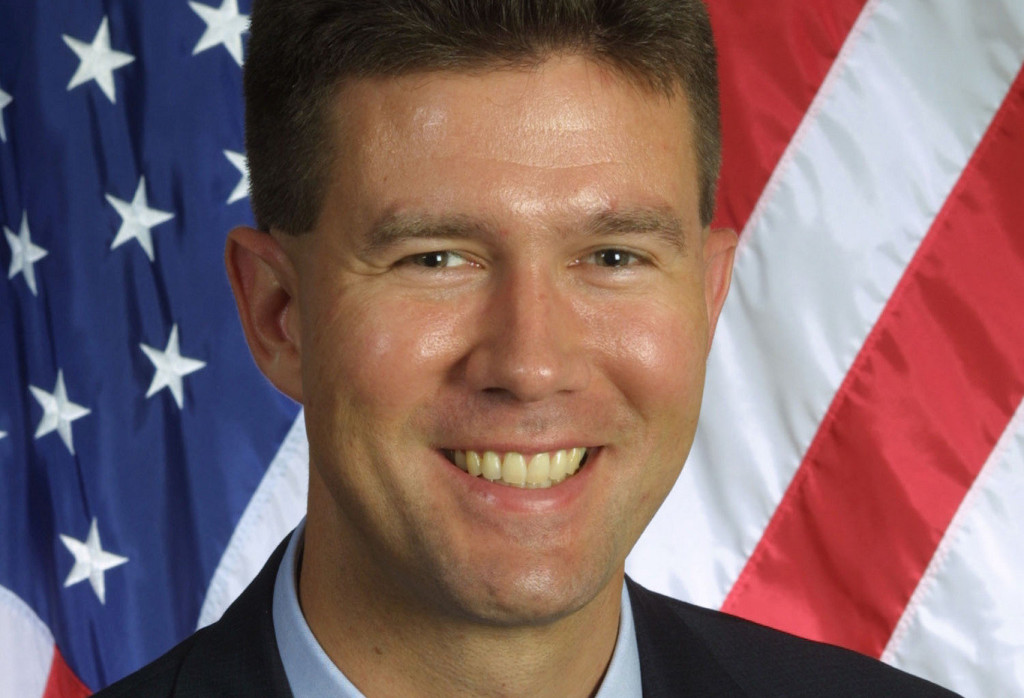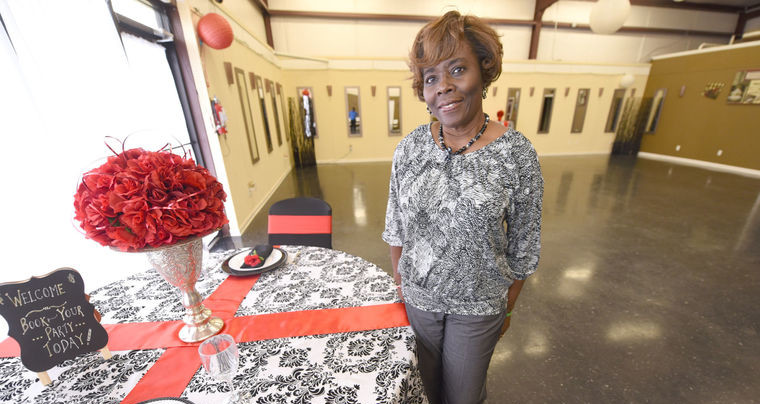Donald Trump, Hillary Clinton continue dominance in 2016 primaries

Republican front-runner Donald Trump swept to victory in the Mississippi and Michigan presidential primaries Tuesday, deepening his grip on the GOP nominating contest despite fierce efforts to block his path. Democrat Hillary Clinton easily carried Mississippi but was locked in a close race with rival Bernie Sanders in Michigan. The primaries offered Trump and Clinton a chance to pad their leads and start turning toward the general election. But Sanders was hoping to prevent a Clinton coronation with a strong showing in Michigan, the night’s biggest prize and the first Midwestern industrial state to vote in the 2016 race. With votes in Michigan still being counted, Clinton glossed over race with Sanders and jabbed at the Republicans and their chaotic nomination fight. “Every time you think it can’t get any uglier, they find a way,” she said. “As the rhetoric keeps sinking lower, the stakes in this election keep rising.” Trump, too, turned an eye toward the Democrats and November, emphasizing the importance of helping Republican senators and House members get elected in the fall. Having entered Tuesday’s contests facing a barrage of criticism from rival candidates and outside groups, he reveled in overcoming the attacks. “Every single person who has attacked me has gone down,” Trump said at one of his Florida resorts. In his typically unorthodox style, the billionaire was flanked by tables packed with his retail products, including steaks, bottled water and wine. While a handful of recent losses to Texas Sen. Ted Cruz have raised questions about Trump’s durability, Tuesday’s contests marked another lost opportunity for rivals to slow his momentum. Next week’s winner-take-all primaries in Ohio and Florida loom especially large as perhaps the last chance to stop him short of a long-shot contested convention fight. Ohio Gov. John Kasich was in a fight for second place in Michigan and hoping for a boost heading into next week’s crucial contest in his home state. For Florida Sen. Marco Rubio, a favorite of Republican elected officials, Tuesday marked the latest in a series of disappointing nights. He emerged from Michigan and Mississippi with no delegates. Rubio insisted he would press on to his home state’s primary in Florida. “It has to happen here, and it has to happen now,” Rubio told supporters Tuesday during a rally in Sarasota. If Rubio and Kasich can’t win at home, the GOP primary appears set to become a two-person race between Trump and Cruz. The Texas senator is sticking close to Trump in the delegate count and with six states in his win column, he’s argued he’s the only candidate standing between the brash billionaire and the GOP nomination. During a campaign stop at a North Carolina church Tuesday, Cruz took on Trump for asking rally attendees to pledge their allegiance to him. He said the move strikes him as “profoundly wrong” and is something “kings and queens demand” of their subjects. “I’m not here asking any of you to pledge your support of me,” Cruz said, to thunderous applause and cheers. “I’m pledging my support of you.” Republicans were also holding contests Tuesday in Hawaii and Idaho. GOP candidates were fighting for 150 delegates, while 179 Democratic delegates were at stake in the party’s two primaries. The economy ranked high on the list of concerns for voters heading to the polls in Michigan and Mississippi. At least 8 in 10 voters in each party’s primary said they were worried about where the American economy is heading, according to exit polls conducted by Edison Research for The Associated Press and television networks. Among Democrats, 8 in 10 voters in both states said the country’s economic system benefits the wealthy, not all Americans. Sanders has sought to tap into that concern, energizing young people and white, blue-collar voters with his calls for breaking up Wall Street banks and making tuition free at public colleges and universities. Michigan, with big college towns and a sizeable population of working-class voters, should be a good fit for him. But Clinton has led in polling. The results in Mississippi underscored Clinton’s overwhelming strength with black voters and Sanders’ stunning inability to draw support from voters who are crucial to Democrats in the general election. Clinton carried nearly 9 in 10 black voters in Mississippi, mirroring her margins in other Southern states with large African-American populations. With Tuesday’s wins, Trump leads the Republican field with 428 delegates, followed by Cruz with 315, Rubio with 151 and Kasich with 52. Winning the GOP nomination requires 1,237 delegates. Among Democrats, Clinton had accumulated 1,134 delegates and Sanders 502, including superdelegates. Democrats need 2,383 delegates to win the nomination. Republished with permission of the Associated Press.
Donald Trump says attack ad will work in his favor

GOP presidential front-runner Donald Trump says he thinks a negative ad that features clip after bleeped-out clip of him swearing publically is actually going to help him with voters. Trump said Tuesday he was a little concerned by the ad from the American Future Fund Political Action until he saw it. He said he thinks that “it’s better than any ad I’ve ever taken for myself.” Trump said he “can be more presidential than anybody” but that right now he’s focused on beating his rivals. He adds that, “people are sick and tired of being politically correct.” Trump says that in some of the instances shows in the ad he was joking. In others, he says he was demonstrating “a certain toughness that we need in our country.” He adds that if he had a choice between taking the ad down and letting it run, he’d say, “let it run.” Republished with permission of the Associated Press.
Donald Trump wins Mississippi primary

Donald Trump has won the Republican presidential primary in Mississippi, edging out Texas Sen. Ted Cruz to post his 13th state victory of the 2016 White House race. The billionaire businessman extends his lead for the highly contested Republican nomination amid a growing outcry by party elites against his unorthodox candidacy. Heading into Tuesday’s contests, Trump led the Republican field with 384 delegates, followed by Cruz with 300, Marco Rubio with 151 and John Kasich with 37. Winning the GOP nomination requires 1,237 delegates. Republished with permission of the Associated Press.
Hillary Clinton wins Democratic primary in Mississippi

Hillary Clinton has won the Democratic presidential primary in Mississippi, riding a continuing wave of support from black voters in Southern states to claim her latest victory over Bernie Sanders. The former secretary of state will proportionally be awarded a share of the state’s 36 delegates. Clinton had already earned 1,134 delegates in previous contests, versus 502 that have gone to Sanders. Clinton’s number is roughly half the amount she needs to clinch the Democratic nomination for president. Her win in Mississippi comes off weekend contests in which Sanders won three out of four states. Republished with permission of the Associated Press.
Trump University plaintiff seeks to withdraw from lawsuit

Tarla Makaeff has had enough of Donald Trump after spending six years fighting him in court. The Southern California yoga instructor wants to withdraw from a federal class-action lawsuit that says Trump University fleeced students with an empty promise to teach them real estate. Her lawyers said the Republican presidential front-runner and his team have put her “through the wringer” and made the prospect of a trial unbearable. A judge will consider the request Friday, four days before Florida and Ohio hold their primaries. Trump’s attorneys say the lawsuit should be dismissed if Makaeff is allowed to withdraw, arguing that their trial strategy centers on her. They deposed her four times and identify her as “the critical witness” in a court filing. Makaeff’s attorneys say Trump’s argument that their client is indispensable to the billionaire’s defense “is illogical to the point of being nearly incomprehensible.” They note the judge allowed two plaintiffs to withdraw last year; three others would remain. The tussle in one of three lawsuits against Trump University comes as the case nears trial, possibly this summer. A trial date has not been set, but a final pretrial conference is scheduled for May 6 and Trump appears on a list of defense witnesses who may testify at trial. The lawsuit has figured prominently in the presidential campaign, fueled by legal filings and Trump’s statements. In depositions that took place in December and January and were released last week, Trump acknowledged that he never met instructors whom his marketing described as hand-picked, and that some unqualified candidates had “slipped through the cracks.” The Better Business Bureau said Tuesday that it rated Trump University a D- in 2010, which improved to A+ by January 2015 as the business appeared to wind down and older complaints automatically rolled off its books. Makaeff attended a three-day “Fast Track to Foreclosure” workshop for $1,495 in 2008 and later enrolled in the “Trump Gold Elite” program for $34,995, spending a total of about $60,000 on seminars in a year, her attorneys say. In April 2010, she sued in San Diego federal court. Trump sued for defamation, seeking $1 million. Makaeff prevailed on appeal, and a judge last year ordered Trump to pay $798,779 in her legal fees. Trump and his attorneys are trying to frame much of their case around Makaeff, saying she gave instructors high marks in surveys after the courses. “The reason they want her out of the case is she is a horrible, horrible witness. She’s got in writing that she loves it. And I could have settled it and when I saw her documentation … Why would I give her money? Probably should have settled it, but I just can’t do that. Mentally I can’t do it. I’d rather spend a lot more money and fight it,” Trump said at a rally in Arkansas last month, according to a transcript. In last week’s Republican debate, Trump said Makaeff wants to withdraw “because it’s so bad for her.” “She simply did not put in the time, work, and perseverance necessary to achieve success,” Trump’s lawyers wrote the judge last month. Makaeff’s attorneys say the yoga instructor was unaware of Trump’s “false advertising” when she filled out the surveys and didn’t want to risk alienating anyone who might advance her career. Makaeff didn’t imagine she would be subjected to criticism under the glare of a presidential campaign, her attorneys say. She has been deposed for a total of nearly 16 hours and suffered anxiety about finances while Trump sued her for defamation. “Understandably, Makaeff wants her life back without living in fear of being disparaged by Trump on national television,” they wrote in a court filing last week. Makaeff declined to comment through an attorney. In a statement to the court, she said she was grieving her mother’s death. “I am very concerned about the toll that the trial would take on my emotional and physical health and well-being,” she wrote. Trump has also addressed criticism of the lawsuit by pointing to the judge’s ethnic background. Asked on “Fox News Sunday” last month what U.S. District Judge Gonzalo Curiel‘s ethnicity has to do with the case, Trump replied: “I think it has to do perhaps with the fact that I’m very, very strong on the border, very, very strong at the border, and he has been extremely hostile to me.” Curiel, who was nominated by President Barack Obama and joined the bench in 2012, declined to comment on Trump’s remarks. Republished with permission of the Associated Press.
$6.3B education budget with teacher pay raises clears Alabama House

In a surprising move, the Education Trust Fund budget cleared the Alabama House of Representatives Tuesday by a unanimous vote, clearing the way for a series of increases to state education funding. HB117 by Rep. Bill Poole (R-Tuscaloosa) comes in at roughly $6.3 billion and is the largest education budget passed since 2008. Next year’s budget is likely to come in at about 4.8 percent higher than this year’s, an increase of roughly $290 million. HB121, another bill from Poole which dictates that teachers making less than $75,000 a year should see a four percent pay raise, while those above see a two percent raise, also passed the House by a unanimous vote today. The budget provides for a wide-array of increases for state education, including $14 million to Alabama’s top-ranking Pre-K program. Further, the budget will fully fund the Public Education Employees Health Insurance Plan (PEEHIP) and provide an additional $9.8 million for transportation, $5 million for technology and $1.6 million for teachers’ supplies. The budget also increases funding for Other Current Expenses (OCE), money that school systems can use for additional needs, by $23.9 million. During a committee hearing last week, opponents of the bill voiced concerns over its failure to adequately address the needs of public libraries and the various programs they offer. Rep. Patricia Todd (D-Birmingham) over the bill’s use of roughly $109 million allocated for departments seemingly unrelated to education. Once approved by the Senate Committee on Education and Youth Affairs, the bill will go before the Senate and then on to the desk of Gov. Robert Bentley for final approval. Both chambers are still hoping to pass the Education Trust Fund and General Fund budgets before spring break, which begins March 21.
Alabama e-book buyers to share $400 million Apple price-fixing settlement

Alabamians who bought e-books from 2010 to 2012 will soon get a piece of the multimillion-dollar settlement with Apple Inc. Alabama Attorney General Luther Strange announced Tuesday that the U.S. Supreme Court denied a request from Apple to review a lower court ruling, which found the tech company liable for its role in raising the price of electronic books. Apple is purported to have conspired with “five major publishers” to increase book rates and the ruling will set into motion a repayment of $400 million to consumers who paid “artificially inflated price for E-books.” “This court action means that Apple will be held accountable for its price-fixing actions, and that consumers who were damaged will receive compensation for their losses,” Strange said in a news release. “This should send a message throughout the nation that such schemes will not be tolerated.” Others involved in the case include Penguin Group (USA), Inc. (now Penguin Random House), Holtzbrinck Publishers LLC, Hachette Book Group Inc., HarperCollins Publishers LLC and Simon & Schuster Inc. Alabama joined with more than 30 other states in investigating and prosecuting the antitrust case, alongside the Department of Justice. The original ruling against Apple came in July 2013 from the U.S. District for the Southern District of New York. The U.S. Court of Appeals for the 2nd Circuit upheld the ruling in June 2015, and the decision by the Supreme Court eliminates any other path forward for Apple. The five publishers settled before the start of the trial, paying about $166 million to consumers, but because the states’ settlement with Apple was contingent on the trial’s outcome, the tech giant will not face the maximum penalty. Along with the $400 million, Apple will be forced to pay an additional $20 million to reimburse states for fees and costs, as well as to resolve claims for civil penalties. Details on how consumers will be reimbursed will be released once finalized.
Email insights: Conservative group, Take Back Our Republic announces new regional coordinators

In an email, Take Back Our Republic (TBOR), a right-leaning campaign finance reform group that’s building conservative support for reducing the influence of private wealth in politics, announced a slew of regional coordinators Tuesday. Launched in January by conservative political consultant John Pudner, who’s best known for for helping Tea-Party-backed candidate Dave Brat unseat then-House Majority Leader Eric Cantor (R-Va.), TBOR’s mission is to conduct research, analysis and public education on conservative ideas for improving the financing of campaigns. The new coordinators will help fulfill said mission. Here’s the full email and the list of regional coordinators: Take Back Our Republic (TBOR), an organization advocating individual participation in the American political system is the best way to preserve and strengthen liberty, today announced ten new regional coordinators. After more than a year of touring the country establishing state chapters to educate the public on conservative solutions to campaign finance reform, these new TBOR Regional Coordinators are providing a grassroots forum to convey the price we all pay for transactional donations used to elect or defeat politicians. Executive Director John Pudner, Southeast Director Joe Comerford and Florida Coordinator Wayne Rossiter will be in Miami through the GOP Debate March 10, and will be organizing in Orlando March 11-12 and Jacksonville through the March 15 Primary. Each regional coordinator worked with members of the existing Take Back team to build their State efforts during 2015 or in past political campaigns that led them to believe in the need for conservative solutions to campaign finance reform: Bryan Posthumus: IL, IN, MI, WI – After generous grants and policy ideas from the Stuart Family Foundation in Lake Forest, IL, other potential donors in all four of these states have stepped forward to discuss our efforts. Bryan’s family experienced big money attacks and support first hand in his father’s successful Lt. Governor’s race. Joe Zane will become Michigan Coordinator with Bryan’s promotion to Regional. Cameron Price: CO, NM, OK, TX (except Houston) – Building on great turnout at State Chapter meetings in Oklahoma and New Mexico and for a video conference in Colorado, Cameron will work with Advisory Board Member Lanell Morold in Dallas. Cameron is a veteran of political campaigns both as a campaign manager and in his mother’s successful elections, and travels this region as an Independent landman, and livestock consultant. Chris Beatty: DC, DE, MD, NC, VA, WV – After recruiting people from several states, as far away as Florida, for a White House rally, Chris found several potential donors and community leaders spokespeople throughout this region. He will work with Diane Cullo, Steve Thomas and Chuck Cunningham on DC efforts including passage of HR 4177. Cole Muzio: KY, OH, PA, TN – Cole’s successful work with our Executive Director on Dave Brat’s upset of Eric Cantor is documented in Taxation Only With Representation. Cole has run numerous successful referenda, zoning efforts, and campaigns throughout this region. Francis Johnson: AK, AZ, CA, HI, NV, OR, WA – Francis is focusing on an Arizona campaign finance reform referendum and meeting with organizations throughout California, as well as a large state chapter being built in Oregon. Francis has been featured in Black Enterprise, and Ebony Magazine as one of the top five Black Republicans in the country for his ability to raise money, organize grassroots. Francis runs a public affairs/public relations firm. Heidi Linford: ID, MT, ND, SD, WY – Heidi is focusing on an Idaho campaign finance referendum. She will also work with Ogden Driskoll, the Wyoming State Coordinator and rancher from next to Devil’s Tower, to build a large organization there. Heidi ran a hugely successful convention effort in the western part of the state when Take Back’s ED was a campaign manager for a statewide effort there in 2008 and where her brother is now State Party Chair. Jacob Scott: IA, KS, MN, MO, NE – Jacob organized one of the most successful fundraisers in 2015, organizing conservative reformers in Kansas City prior to a World Series game. He introduced John to a number of Missouri legislators and legislative assistants, one of whom (Dave Myers of Springfield) will become the Missouri coordinator with Jacob’s promotion to regional coordinator. Joe Comerford: AL, FL, GA, SC – Joey first marched with TBOR’s press secretary Jared Thomas in a campaign event in 2003 for now Congressman Tom Price. It was one of several successful Georgia campaigns, though he also coordinating several huge events in Auburn, Alabama when he was a student there, and he has family connections throughout the region. Joey plans to meet with ED John Pudner and new Florida coordinator Wayne Rossiter in Coral Gables next week to focus on a Miami-Dade campaign finance referendum. Paul Lichstein: CT, MA, ME, NH, NJ, NY, RI, VT – Paul was the first and only Regional Coordinator for Take Back in 2015. He worked State Capitol’s throughout the region for years, and said in an HBO interview that the multi-million dollar company he runs pays more in taxes than multi-billion dollar corporations as an example of the price we all pay. He successfully connected Take Back’s ED with potential donors in NJ and NY, and worked NH events with him prior to the Primary there. York Forsyth: AR, LA, MS, TX (Houston) – York is focused on an Arkansas campaign finance referendum. As Louisiana State Coordinator, he battled with Jacob Scott’s Missouri chapter for top Take Back chapter. He has posted blogs and collected members, and helped spread the word through the University of New Orleans, where he teaches. Brandt Lewis will take over the Louisiana chapter with York’s promotion to Regional. The Regional coordinators will each help to advance some combination of the five facets of the TBOR mission; 1) compliance (never using Take Back resources or forums to advance or defeat any party or candidate, 2) development (finding and cultivating like-minded donors), 3) media (educating the public on the price we all pay through traditional and social media), 4) members and lists (building lists of like-minded activists and community
John Merrill announces ‘civic engagement and environmental conservation’ events

Robert C. Hatch High School (RHHS) and Francis Marion High School (FMHS), two schools in Alabama’s Black Belt region, will be taking part in the annual Teach for America/Americorps Week with events aimed at “civic engagement and environmental conservation.” According to a press release from the office of Secretary of State John Merrill, “Teach For America-Alabama has become an important partner in the local effort to ensure that every child has access to an excellent and equitable education.” The organization recruits college graduates to teach in rural and urban schools for at least two years to ensure that “all children have an equal chance in life.” Merrill will be the guest speaker in two classrooms at an event March 9 at FMHS and will discuss his role as Secretary of State, lessons learned from his own educational and professional career and the importance of voting and community service. That same day, Black Warrior Riverkeeper Nelson Brooke will address students at RHHS to discuss water pollution and conservation efforts aimed at the Black Warrior River in Perry County. The Riverkeepers are a non-profit organization dedicated to protecting the river, which is entirely contained in Alabama.
Obamacare fines double for many uninsured at tax time

Many people who went without health insurance last year are now seeing fines more than double under President Barack Obama‘s health care law, tax preparation company H&R Block said Tuesday. Among its customers who owe a penalty for the 2015 tax year, the average fine is $383, compared with $172 for 2014, the company said. Separately, among those who complied with the law and took advantage of its taxpayer-subsidized private health insurance, 6 in 10 are now having to pay back to the IRS some portion of their financial assistance. Those payments also are trending higher this year, averaging $579, compared with $530 last tax season. Although millions of uninsured people have gained coverage through the Affordable Care Act, the update from H&R Block underscores the extent to which the law’s complex provisions remain a challenge for many consumers. The law provides subsidized insurance for people who don’t have access to coverage on the job. By using the income tax system to deliver the subsidies as tax credits, the White House and congressional Democrats were able to call the health law a middle-class tax cut. But it also connected two of the most complicated areas for consumers: health care and taxes. At tax time, people have to account for the subsidies they received for health care or, if they remained uninsured, pay a fine. H&R Block said it expected to see lots of confusion last year, the first time that consumers had to grapple with the connections between the health law and the income-tax system. But such issues don’t seem to have diminished this tax filing season. “Even the people going through it a second time weren’t getting any better at it,” said Mark Ciaramitaro, the company’s vice president for taxes and health care. About the same proportions of returning customers and new customers wound up having to repay subsidies. Ciaramitaro said many consumers appear to be having problems correctly estimating their incomes for the year ahead. Lower-income workers who represent a big part of the customer base for coverage can have sizable swings in their earnings over the course of 12 months. Underestimating income results in a bigger tax credit up front to help pay your premiums. But at tax time any overpayment has to be repaid – usually subtracted from the consumer’s tax refund. H&R Block said those who owed money back saw about a 20 percent reduction in their federal refunds. Only 3 percent of its customers with health law subsidies saw no impact on their refunds, meaning they correctly estimated their incomes, or called HealthCare.gov to report changes during the year. More than 1 in 3 overestimated their incomes, meaning that received a smaller tax credit than they were entitled to. They got an average of $450 back from the IRS. As for the health care law’s fines, they’re meant as a stiff nudge to get healthy people who can afford coverage to join the insurance risk pool, thereby helping to keep premiums more manageable for everyone. Exemptions are available for people with low incomes or who face other extenuating circumstances. But the law’s requirement to have coverage or risk fines remains highly unpopular. The minimum fine went up from $95 in 2014 to $325 for the 2015 tax year. It rises again this year to $695 for an adult uninsured for a full 12 months. H&R Block said that means an uninsured family of four earning $60,000 will face a penalty of $975 for this year, compared with about $400 for 2015. Next year, that same hypothetical family would face a penalty of $2,000 at tax time. With 2016 open-enrollment season over, uninsured consumers have few options for avoiding fines next year at tax time. If they don’t qualify for a hardship exemption, they can try to find a job that provides health insurance, or see if they meet the criteria for a special sign-up period through HealthCare.gov. Republished with permission of the Associated Press.
Bill banning speed cameras in police cars passes House committee

The House Committee on Montgomery County Legislation approved a bill Tuesday that would prohibit Montgomery police from using traffic cameras in unoccupied cars, a practice approved by the Alabama Legislature in 2011. SB201, sponsored by Sens. Dick Brewbaker (R-Montgomery) and Quinton Ross (D-Montgomery), comes out of public resentment for the police practice, which essentially establishes decoy cars throughout the city and issues tickets via mail. The 2011 bill specifies that the tickets should be mailed to residents within 30 days of the offense and include a picture of the offending vehicle and license plate, a description of the offense and the time, date and location of the violation. An amendment to the legislation was offered, which would have allowed the cars to be used in residential and school areas but prohibit them on four-lane roads, federal and state highways and in construction zones, but the committee tabled it. In a statement on Facebook, Montgomery Mayor Todd Strange said he was “disappointed” with the committee’s decision, saying that the cameras in residential and school areas are “a tremendous force multiplier that supplement manned enforcement by our traffic officers while allowing other police personnel to fight crime, protect and serve,” explaining “our neighborhoods, our schools and our children” would stand to lose the most. “We will continue to oppose this bill when it reaches the floor of the Alabama House and again ask the members of the Montgomery delegation to seek the opinion of the neighborhood associations and schools regarding the effectiveness of the speed car cameras in unmanned marked police cars,” Strange continued. “Speed cameras work.” The cameras generated just over $136,000 in annual revenue in 2015 — less than 6/10 of 1 percent of the city’s general fund — for a department whose budget is slated to surpass $230 million this year. The legislation, which simply states that the 2011 bill be completely repealed, has already passed the Senate and is now cleared to go before the House of Representatives.
Retired Alabama educator enjoys life owning dream business in Enterprise

The dream career Helen Nichols said she had tucked inside her heart for more than 40 years while she served as an educator became reality a little more than a year after she retired. Nichols is the owner of Panache Events on Geneva Highway in Enterprise, across from Enterprise City Hall. The event venue, considered one of the larger such venues in the city, opened in November. Nichols is among retirees who spent time working in one occupation before retiring and either starting or working in an industry of their choosing. The Ewing Marion Kauffman Foundation‘s 2015 Kauffman Index for startup activity reported people ages 55 to 64 accounted for 25.8 percent of new entrepreneurs in 2014, up from 14.8 percent in 1996. Nichols, who retired two years ago as director of Enterprise State Community College‘s Fort Rucker campus, said she had always dreamed of having an event venue for stylish and elegant events. She said it was divine intervention after her retirement that prompted her to open Panache once she fulfilled other obligations. “I really started thinking about what it was I wanted to do,” she said. “My pastor at that time gave us a bracelet that read ‘I dare you to trust God,’ and around that same time I visited a friend’s church, where the sermon was to go ahead and do what you wanted.” Nichols’ pursuit of her dream led to the renovations of a vacant building in Enterprise, which she named Panache Events and designed in such a way to accommodate a variety of celebrations and meetings. Birthday and retirement parties, business meetings, line dancing and wine tastings are just some of the events that have been hosted there. Nichols said she derived the name from a nickname her husband gave her years ago. In addition to serving as a director of multiple programs, Nichols was also a guidance counselor, and a teacher in both secondary and postsecondary education. She said Panache Events has gained the attention of several residents near and far whom Nichols encountered throughout her years of service. “I’ve been so very fortunate that my bookings have come through word of mouth. I’m just over the moon ecstatic,” she said. “Doing this has confirmed that I have divine intervention here. God has sent people to me to help, from painting the walls to hanging my mirrors, who wouldn’t take any money for it. My contractor was recommended by someone.” Operating her business is not at all overwhelming or preventative of her plans to enjoy retirement, she said. Nichols said she works with event planner Jackie Johnson to decorate Panache each month with a different theme, and also has others fill in as necessary. “This type of venture is not taxing. I love to travel and I’m still allowed to do that. If I have something to do I just don’t book that particular day,” she said. “I also have some wonderful friends who will pitch hit for me if I’m not here.” Nichols said realizing “it’s never too late” to follow a dream has become her testimony. “If you want something, you go after it,” she said. “I determined that the worst that could happen was that if the business didn’t work, it was real estate that I could sell, but I was going to work so hard that it would be successful.” Republished with permission of the Associated Press.


